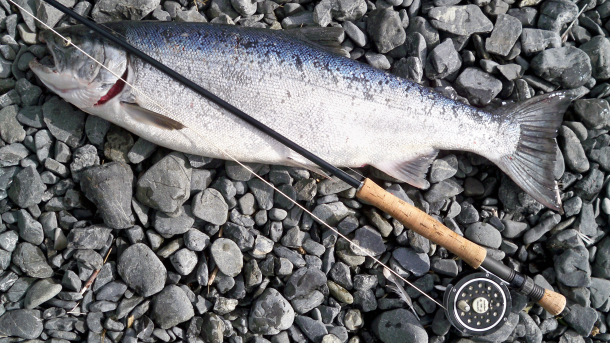An unusual species of parasite was recently discovered by scientists. The tiny parasite hides in the muscles of salmon and has less than 10 cells. And most peculiar, the species, Henneguya salminicola, does not breathe oxygen. This abnormal trait makes it the first known multicellular animal that can survive without oxygen.
The study was published on Tuesday, Feb. 25, in the scientific journal Proceedings of National Academy of Sciences of the United States of America (PNAS). The research was conducted by scientists at Tel Aviv University and led by university Zoology Professor Dorothee Huchon.
The study found that as the species evolved, it gave up the ability to breathe and consume oxygen to produce energy. The animal is a relative of jellyfish and coral.

Photo by Marsh Williams from Pexels
“Aerobic respiration was thought to be ubiquitous in animals, but now we confirmed that this is not the case,” Huchon said in a news release. “Our discovery shows that evolution can go in strange directions. Aerobic respiration is a major source of energy, and yet we found an animal that gave up this critical pathway.”
While H. salminicola is the first animal to lose ability over time, it is not the first organism to lose the ability. Other organisms, such as fungi, amoebas or ciliate lineages, have also lost the ability to breathe over time. However, the recent study demonstrates that this same process can happen to an animal.
The scientists hypothesize whether this happened to the animal because of its anaerobic environment. An anaerobic environment is one in which there is a lack of oxygen.
While conducting research, the scientists found that the mitochondrial genome was missing from the animal. Mitochondria are fundamental for collecting oxygen and converting it into energy. Thus, scientists concluded that the tiny parasite no longer breathes oxygen.
“It’s not yet clear to us how the parasite generates energy,” Huchon said. “It may be drawing it from the surrounding fish cells, or it may have a different type of respiration such as oxygen-free breathing, which typically characterizes anaerobic non-animal organisms.”
The finding debunks another widely-held notion in evolutionary science, which is that organisms become more and more complex during evolution. Also, according to Huchon, it is generally believed that simple single-celled or few-celled organisms are the ancestors of complex organisms.
“But here, right before us, is an animal whose evolutionary process is the opposite. Living in an oxygen-free environment, it has shed unnecessary genes responsible for aerobic respiration and become an even simpler organism,” Huchon concludes in the news release.
